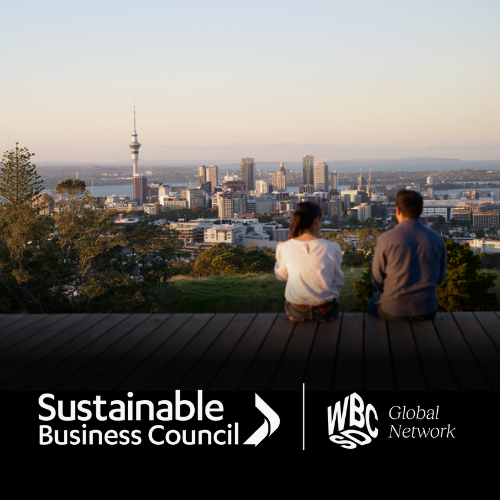The case for sustainabilty
Abbie Reynolds outlines how SMEs that integrate sustainability into their core business strategy can enjoy lower costs, reduced risk, and new opportunities.
Abbie Reynolds outlines how SMEs that integrate sustainability into their core business strategy can enjoy lower costs, reduced risk, and new opportunities.
Business sustainability took a major step forward with the NZX’s recent proposals to introduce for the first time rules for reporting on environmental and social performance.
So, why do guidelines for listed companies on reporting these ‘non-financials’ matter to the small and medium enterprises that are the core of New Zealand’s economy?
Because it’s another factor that demonstrates how sustainability and transparency in business is mainstreaming – which impacts the entire business ecosystem.
Globally, business is expected to be part of the solution to environmental and social issues. As part of that, financial markets are requiring comprehensive reporting on sustainability and New Zealand has been lagging.
So the NZX has taken a critical step in getting us in line.
The NZX is also responding to strong investor demand for greater transparency and accountability. Indeed, its investors that are one of the main forces driving the sustainability agenda in New Zealand.
This pressure to demonstrate sustainability is not limited to large listed companies. SMEs, too, are increasingly expected to measure, manage and communicate their environmental and social impacts throughout the supply chain where sustainability credentials are being demanded by both customers and suppliers.
This is especially true for those SMEs seeking to secure contracts with governments or larger companies embedding sustainability into their operations, such as Sustainable Business Council members ranging from Z Energy, Toyota New Zealand and Air New Zealand through to Fonterra and Moana Fisheries.
SMEs also need to ensure they have access to the resources they need to be able to continue to offer their products and services in the future.
Our research into the business case for sustainability shows that it’s no longer about making a case, rather it’s a way of operating. And in the case of some of our SME members – such as responsible drycleaner ApparelMaster and the recycling, disposal service 3R – it’s their central purpose.
Ultimately, the case for sustainability is:
- The Market – Consumers and customers (especially business-to-business customers) are demanding a better understanding of where the goods and services they buy are from and how they were made. Kiwi consumers expect businesses to build sustainability into the way they do business and make it easy for them to make sustainable choices.
- Employees – Sustainability helps attract, retain and engage staff – especially those from Gen X, Gen Y or Millennials. According to Colmar Brunton nearly 75 percent of Kiwis say it is important to work for a company that is socially and environmentally responsible.
- Exporters – Sustainable business processes and product or service credentials can lead to better access to international markets. Factoring in our distance from key markets, New Zealand exporters need to ensure their products are seen as premium to compete.
- Procurement – It’s increasingly common for large companies to include sustainability performance in their tender process, comparing suppliers’ products or services against a set of criteria that align with their own values and performance. Where risk is identified in their supply or ‘value’ chain they’ll take steps to address it.
- On the flipside, if you look at the potential risks of not starting to integrate sustainability you could see:
- Consumers switch to a more sustainable brand and encourage others to do the same.
- It becomes harder to attract and retain talent.
- It becomes harder to attract investments and access capital.
- Significant extra costs through increased environmental regulation.
- It’s a struggle to compete effectively in bids and tenders due to lack of sustainability ‘creds’.
- An inability to partner or collaborate to innovate with other sustainable businesses.
- You miss out on cost savings and/or face business disruptions due to inefficient resource use.
- You do not have goods or services relevant to customers’ or consumers’ needs.
So whilst many SMEs might think that sustainability is only relevant to large companies and that the costs outweigh the benefits, integrating sustainability into a core business strategy may deliver lower costs, reduced risk, and new opportunities.
Contact:
Phone:
Email:

